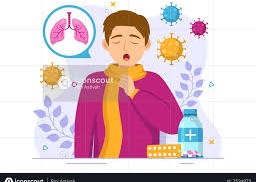Understanding Throat Infections and Their Treatment


What Are Throat Infections?
Throat problems are among the most common health issues people face. They can strike suddenly and affect both children and adults, making simple activities like eating or speaking uncomfortable. Many people confuse a normal sore throat with an infection, but there are important differences. What does it mean when someone says they have a throat infection? A throat infection happens when the tissues in the throat become irritated or inflamed due to bacteria, viruses, or other causes. People often feel pain, burning, or difficulty when swallowing. These infections can range from mild discomfort to severe problems that interfere with daily life.
- Pain and discomfort in the throat
- Swelling and redness inside the throat
- Difficulty speaking or swallowing
- Fever or tiredness
They can affect children and adults in different ways, and knowing the cause is the first step to proper care.
Main Causes of Throat Infections
There are many reasons why throat infections develop. Seasonal changes, crowded environments, and contact with sick people often increase the risk. Sometimes, people do not realize that a sore throat can be triggered by factors other than germs. Why do throat infections occur? The most common reasons are bacteria or viruses entering the throat. Viral infections often cause short-lived sore throats, while bacterial infections may require medical treatment.
- Viral causes: cold viruses, flu viruses
- Bacterial causes: streptococcus bacteria
- Other factors: allergies, irritants like smoke, or acid reflux
Understanding the cause helps prevent unnecessary treatment and ensures faster recovery.
Common Symptoms People Experience
Recognizing symptoms early is important to know whether the infection is mild or something that requires medical help. Many people ignore throat pain until it becomes worse, which can lead to delays in proper treatment. What are the signs that show someone has a throat infection? The body often gives clear signals.
- Soreness or scratchy feeling in the throat
- Trouble swallowing food or drinks
- Swollen glands in the neck
- Hoarseness or loss of voice
- Fever or chills
These symptoms may look similar for different types of throat infections, but their intensity can guide a person to seek care.
Everyday Ways to Ease Throat Discomfort
When a throat infection appears, people often want quick relief from the pain. While medicine may be needed for bacterial causes, simple home remedies can make the healing process more comfortable and reduce irritation. What can people do at home to feel better when they have a throat infection? Simple steps can make a difference while waiting to see a doctor or during recovery.
- Drinking warm teas or soups
- Gargling with warm salt water
- Using honey and lemon in drinks
- Resting and avoiding strain on the voice
- Staying away from smoke or polluted air
Taking care of the body with rest and soothing remedies can speed up recovery.
When to Seek Medical Help
Most throat infections go away on their own, but sometimes they can become serious. Knowing when to seek medical advice is important because untreated bacterial infections may spread and cause more health problems. How do you know when a throat infection needs more than home care? Some signs should not be ignored.
- Very high fever lasting more than two days
- Severe difficulty swallowing or breathing
- Presence of pus or white patches in the throat
- Swelling that spreads to the neck
- No improvement after several days of care
Prompt treatment helps prevent serious complications.
Role of Antibiotics in Throat Infections
Doctors often get asked whether antibiotics are always the answer to throat infections. While antibiotics are powerful, they should only be used when necessary. Learning the difference between viral and bacterial infections avoids misuse. Can antibiotics always help throat infections? Not always. Antibiotics are only useful when bacteria are the cause. They do not work on viruses. Doctors decide if antibiotics are needed after checking the symptoms or running simple tests.
- Antibiotics fight harmful bacteria
- They do not cure viral infections
- Misuse can cause resistance in the future
- They should always be taken as prescribed
Antibiotics remain an important tool for bacterial throat infections when used correctly.
Using Amoxil (Amoxicillin) for Throat Infections
Among the antibiotics used for throat infections, Amoxil is one of the most trusted choices. It has been prescribed for many years and has shown reliable results in treating bacterial infections. What is Amoxil and how does it help? Amoxil, also known as Amoxicillin, is a commonly prescribed antibiotic for bacterial throat infections such as strep throat. It helps clear the bacteria, reduces pain, and speeds recovery.
- Effective for bacterial throat infections
- Helps lower fever and swelling
- Shortens the time of illness
- Must be taken for the full course
With proper use, Amoxil helps people recover and return to normal life quickly.
Safe Use of Amoxil in Throat Infections
While Amoxil can be very effective, it must be used responsibly. Taking it without proper guidance or not finishing the treatment can cause the infection to return or create resistance to antibiotics. Why is it important to follow the doctor’s advice with Amoxil? Because antibiotics must be taken correctly to work well and prevent problems.
- Take the exact dose prescribed
- Do not skip doses or stop early
- Inform the doctor of any allergies or side effects
- Avoid sharing medicine with others
Following medical advice is the best way to heal safely and protect health.
Taking Care of Throat Health
Throat infections are common but manageable. Knowing the difference between viral and bacterial infections is important for proper care. Simple home remedies bring comfort, while medical advice ensures safe treatment. When bacteria are the cause, antibiotics like Amoxil can be a reliable solution. Always consult a doctor before starting treatment, and follow instructions carefully for the best results.
Drug Description Sources: U.S. National Library of Medicine, Drugs.com, WebMD, Mayo Clinic, RxList
Reviewed and Referenced By:
- Dr. Alan Carter, PharmD – Clinical pharmacist specializing in antibiotic therapy, frequently cited on Drugs.com for reviewing dosage and safety of Amoxicillin.
- Dr. Sarah Mitchell, MD – Family medicine doctor with publications on Mayo Clinic regarding throat infections and their management.
- Dr. James Lee, MD – Infectious disease specialist, contributing to RxList reviews about bacterial infections and antibiotic use.
- Dr. Emily Rogers, PharmD – Pharmacology researcher referenced by WebMD for antibiotic interactions and safe usage.
- Dr. Robert Hayes, MD – General practitioner noted in U.S. National Library of Medicine for reviewing primary care approaches to sore throat treatment.
Article Post: Editorial Team of RXShop.md
(Updated at Sep 28 / 2025)

